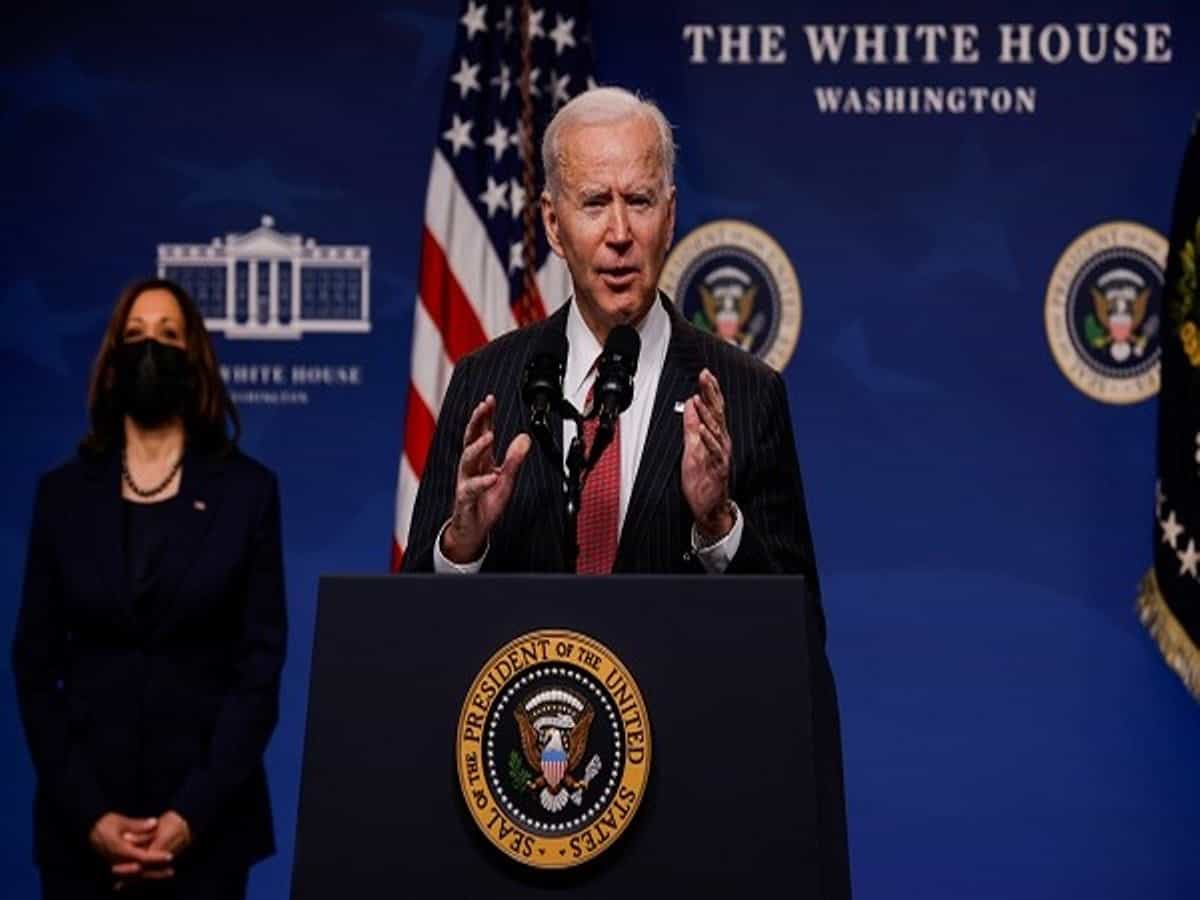Nicosia: Joe Biden’s US Secretary of State Antony Blinken last Friday, recognizing the dire humanitarian situation in Yemen, announced the reversal of former President Trump’s designation of Ansarallah (the Houthis Movement) as a foreign terrorist organisation and specially designated global terrorist group. The decision comes into effect on 16 February.
Two weeks before stepping down, President Trump, designated Houthis as a terrorist group, disregarding the fact such a decision could lead to the death of thousands of starving Yemenis. UN Secretary-General Antonio Guterres had stressed a few days earlier that Yemen was “in immediate danger of the worst famine the world has seen for decades.”
Humanitarian organisations
Many international humanitarian organizations, such as “Save the Children” had made it clear that the decision would be catastrophic for countless children and their families in Yemen. Aid organizations argued that they have no choice but to deal with the Houthis, who are the de facto government in 80 percent of Yemen, and that the designation would put them at risk of prosecution in the United States. Trump’s decision already has had a chilling effect on humanitarian workers and importers of food, who would be risking prosecution if their goods fall into Houthis hands.
Announcing the reversal of the designation, Antony Blinken said: “We have listened to warnings from the United Nations, humanitarian groups, and bipartisan members of Congress, among others, that the designations could have a devastating impact on Yemenis’ access to basic commodities like food and fuel…By focusing on alleviating the humanitarian situation in Yemen, we hope the Yemeni parties can also focus on engaging in dialogue.”
The new US administration made it clear that, although Ansarallah was removed from the terror blacklist, three of the movement’s key leaders would remain under sanction. Furthermore, it stressed that it does not forget Ansarallah’s “malign actions and aggression, its crimes and repression of the people of Yemen and the attacks against US partners in the Gulf.”
Support for Saudi-backed operations inYemen
Earlier in the week, President Joe Biden announced that the US would end its support for the Saudi-backed offensive operations in Yemen, including a freeze on arms sales to the Kingdom, but stressed that the US would continue to support the Kingdom, as it continues to face attacks on its soil.
It should be noted that, although the Houthis welcomed the approach of the new US administration and said that they were cautiously optimistic, they warned that they will not stop firing their missiles until there is a ceasefire. “They started the war and they are the ones who should end it,” their official spokesman said. Just days before the announcement of the removal of the designation as terrorists, the Houthis launched drone attacks on the Abha International Airport and the King Khalid International Airport in Riyadh and resumed an offensive against the Yemeni city of Marib.
The internationally recognised government of Yemen, which is backed by Saudi Arabia and controls about 20 per cent of Yemen’s territory, welcomed Biden’s statements, stressing the importance of supporting diplomatic efforts to resolve the crisis.
For its part, Saudi Arabia said it welcomed Biden’s “commitment to cooperate with the Kingdom to defend its sovereignty and counter threats against it.”
It is fortunate that the misguided decision of Donald Trump was lifted before it could have a widespread effect. It could not really harm Ansarallah’s military leaders, who continue to receive all kinds of support from Iran, but could have been disastrous for food and fuel importers as well as on aid workers in Yemen.
Antony Blinken had realised this, and pointed out that his concern about Trump’s designation was that “at least on its surface it seems to achieve nothing particularly practical in advancing the efforts against the Houthis and to bring them back to the negotiating table, while making it even more difficult to provide humanitarian assistance to people who desperately need it.”
Obviously, the Biden Administration should think hard about the effectiveness of sanctions and designation of terrorists, because as a rule, they do not have the desired results.
Sarah Leah Whitson, Executive Director of Democracy for the Arab World, says that “like the economic sanctions and terrorist designations applied to Iran, Venezuela and Cuba and entities within them, the State Department’s designation of Ansarallah has nothing to do with an impartial assessment of the facts on the ground or merits of such a policy. Instead, it has been deployed as an economic tool of warfare against international nemeses in the hopes that they will say uncle to US demands and give up power. Every one of these targeted governments remains in power, while the sanctions against them have only harmed ordinary people who have little to no say in what their governments do or do not do.”
Famine in Yemen
There is no doubt that Biden’s decision to revoke the Houthis’ designation has prevented the acceleration of the humanitarian catastrophe in Yemen, but the situation of famine in Yemen, the poorest Arab country, with about 30 million people, continues to be critical.
As David Miliband, President of the International Rescue Committee, points out “the designation of Ansarallah would have done nothing to tackle terrorism and everything to make humanitarian aid and commercial traffic impossible. The next steps are to raise aid flows, negotiate a permanent ceasefire, and get the diplomatic process moving to establish a sustainable political settlement.”

